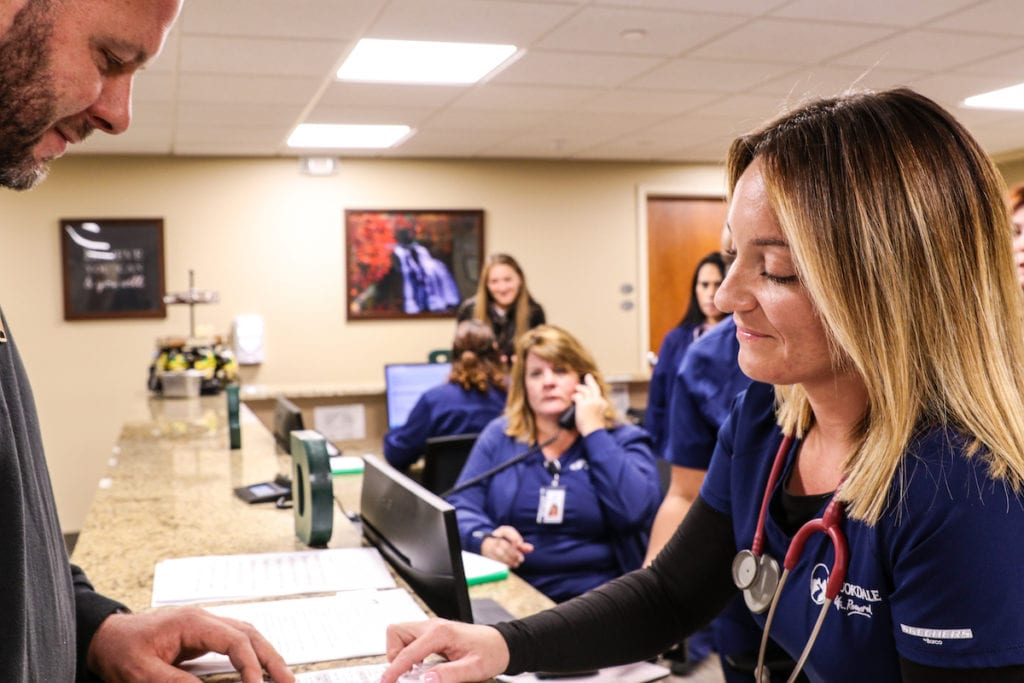
What to Expect In a Day Of Rehab
For most people, inpatient rehab is a foreign concept surrounded by mystery. Although rehab centers are not purposely trying to hide the details of their programs, they can be hard to explain and can differ to a fair degree between facilities. This leaves people on the outside with questions such as:
- What is a typical day like?
- What do patients do throughout the day?
- What is the strict routine that addicts are expected to follow?
- Why are these programs arranged like this?
Having the answers to these questions can ease the nerves of a person that is entering an inpatient program or sending a loved one to do the same. They also provide further insight into how difficult the recovery process can be without proper care, and why many people find themselves falling short when they attempt to quit using an addictive substance on their own.
Why are Inpatient Programs so Structured?
For an individual not struggling with addiction or unfamiliar with the difficulty of recovery, it might seem as though the strict regime of an inpatient program is a bit excessive. During treatment, patients are carefully monitored most of the day and a staff member is never far away. They are also forced to get up early in the morning and then proceed through a series of pre-selected activities each day.
The truth however is that the program is structured like this because it is the most effective way to help an addict recover. Having an organized program reduces stress and uncertainty among patients, giving them hope and goals to strive toward on their way to recovery. For example, getting up early and working through different activities helps keep their mind busy, distracting them from any substance use urges or other uncomfortable symptoms, while also teaching healthy habits to replace their negative ones.
All of this is valuable because the goal of inpatient rehab is to not just to treat the immediate addiction, but to prepare the patient for living sober outside of treatment. To do this, they will need to have the positive skills, habits and knowledge to resist relapse when they return home. Living in a program like this also means that they are in a safe environment where support is always within easy reach.
Mornings: A Healthy Breakfast and Early Activities
A day in a rehab center starts with a timely breakfast that is carefully crafted to fit the patient’s nutritional needs. This is crucial because many patients come into treatment in poor health because they have been neglecting themselves. It also helps give them the energy they will need to stay alert and engaged during the day.
When breakfast is finished, the next step is to proceed to whichever activities the rehab center has planned for the patient that morning. What these will be can vary widely depending on what has worked for the patient and what the rehab center is equipped to provide, but common options include yoga or meditation. These types of activities are preferred in order to provide a slower pace as the patient is still waking up and to put them in a relaxed and proactive mindset as they continue through their day. That mindset in turn increases the effectiveness of the other programs and therapy they may undergo.
After breakfast and early morning activities, most patients will have a session of group therapy before lunchtime. Here, the patient will interact with other recovering addicts at the facility while learning from a therapist. Whether this focuses on support building or skill development will depend on the therapist’s personal choice for the group.
While the exact activities may change from day to day, the rehab center will continue to follow this schedule, ensuring that the patients have an idea of what to expect each morning. Having a strict routine like this often makes it easier for them to stay relaxed, as there are no surprises to be fearful of.
Afternoons: Daily Therapy
After a balanced lunch, the real work begins. Here, from the middle of the day towards the evening, the patient will have the majority of their therapy sessions. These are more intensive and aim to uncover the original cause of an individual’s addiction, help them overcome it, and then give them the skills and knowledge to avoid relapse in the future.
The exact procedure at this point will once again depend on the rehab center and the unique nature of the patient. If one type of therapy is not working for a patient, this is where the staff can easily substitute another. As a result, this part of the day will be customized to fit the patient’s specific needs along the road to recovery.
Some of the common sessions that might be held during this part of the day include:
- Individual Behavioral Therapy
- Group Therapy
- Specialized Sessions
- Family Therapy
Knowing a bit about these different types of therapies is useful for understanding the typical day better, as well as the overall process for inpatient rehab.
Individual Behavioral Therapy
Known as Cognitive Behavioral Therapy (CBT), individual therapy is one of the most valuable types of therapy for a patient in recovery. Working one-on-one with a therapist in a safe, confidential environment, the pair will focus on understanding the patient’s behavior in order to uncover the cause of their addiction while seeking out specific triggers that promote drug abuse. A more personal environment makes it easier and more comfortable for patients to open up about their feelings and past experiences, compared to other types of approaches, such as group therapy.
Once the triggers have been identified, the patient will continue to work closely with the therapist, this time to develop heathy habits and responses to those triggers. The end goal of this stage is for the patient to experience new, positive responses to potential triggers, rather than negative responses that influence addictive behavior.
Group Therapy
In many cases, the afternoon features another session of group therapy. Like in the morning, this is valuable for teaching and reinforcing new skills in an encouraging environment. Additionally, by working with other recovering addicts, the members build a support system as they learn from each other, making the recovery process notably less difficult.
Specialized Sessions
Based on a patient’s needs, many rehab centers provide specialized therapy sessions that will be held in the afternoon as well. These can vary greatly, but typically cover subjects such as anger management, stress management or grief counseling. In addition to helping a patient’s life improve overall, overcoming these issues can greatly progress their recovery efforts, as issues like these are commonly related to drug misuse. For example, if the patient is struggling with the loss of a loved one and has no healthy coping strategies, they may be turning toward substance abuse to numb their pain.
Family Therapy
While a family may be hurting because of a member’s addiction, those family bonds are also one of the most powerful support networks that a patient can have. As a result, many rehab centers utilize family therapy, which is when the individual and their primary family members attend sessions together. This is done to educate the family about substance use disorders and their loved one’s needs, while also showing the patient that they are not alone in their journey.
A substance use disorder affects more than just the addict. It causes their loved ones to feel pain, as well as destroy family relationships if ignored long enough. In some cases, it can even cause the health of family members to decline due to guilt, shame, or even a new addiction of their own. This process is called “destructive codependency” and is one of the most frequently overlooked risks of addiction. Holding family therapy sessions can help prevent this from happening, or if it has already started, stop it from progressing further.
Evenings: Final meeting and Early Sleep
Near the end of the day, many programs choose to hold another group session. This meeting may be different than other meetings during the day and is generally based around the 12-step philosophy that has been popularized by groups like Alcoholics Anonymous. There may also be an emphasis on self-reflection at this point of the day, giving patients an opportunity to reflect on what they have learned throughout the day.
There are usually a few hours of free time before the meeting, where patients can use some of the recreational amenities the facility has, such as its basketball courts or pool. Many patients often use this time to read, journal, pray or meditate. When the meeting and free time is over, patients are encouraged to go to bed early so they will have the energy to begin the process again the next day.
Getting Help Today
Recovering from an addiction is no easy task, but with the proper support from a licensed addiction treatment center, there is hope for a life…recovered. During their days in treatment, patients can expect to participate in various therapeutic modalities and other specialty programming, all carefully crafted to give them the tools they will need for long-term recovery.
If you suspect yourself or a loved one of a substance use disorder, time is of the essence! Getting help immediately will greatly increase the chances of breaking free from addiction and rebuilding your life for a better tomorrow.
Please contact Brookdale’s trusted Admissions Specialists now at (855) 575-1292 to begin the treatment process, so you and your loved ones may have the life you truly deserve!

